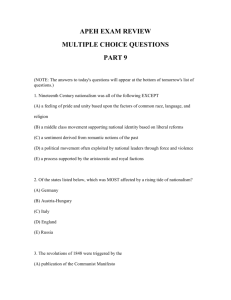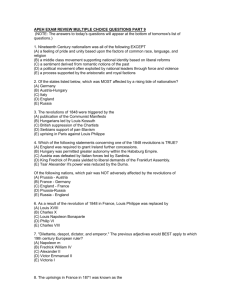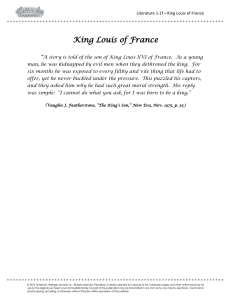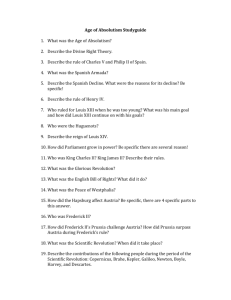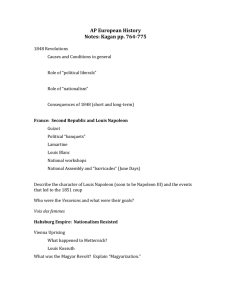1. The intellectual father of Romanticism was A. Voltaire.
advertisement
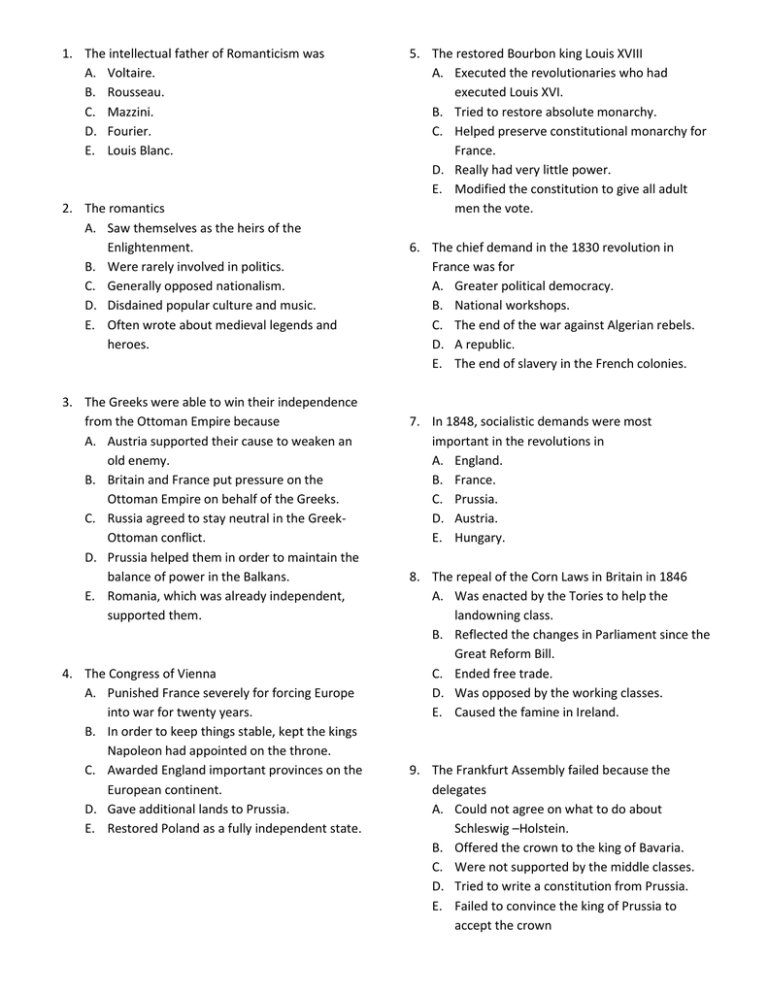
1. The intellectual father of Romanticism was A. Voltaire. B. Rousseau. C. Mazzini. D. Fourier. E. Louis Blanc. 2. The romantics A. Saw themselves as the heirs of the Enlightenment. B. Were rarely involved in politics. C. Generally opposed nationalism. D. Disdained popular culture and music. E. Often wrote about medieval legends and heroes. 3. The Greeks were able to win their independence from the Ottoman Empire because A. Austria supported their cause to weaken an old enemy. B. Britain and France put pressure on the Ottoman Empire on behalf of the Greeks. C. Russia agreed to stay neutral in the GreekOttoman conflict. D. Prussia helped them in order to maintain the balance of power in the Balkans. E. Romania, which was already independent, supported them. 4. The Congress of Vienna A. Punished France severely for forcing Europe into war for twenty years. B. In order to keep things stable, kept the kings Napoleon had appointed on the throne. C. Awarded England important provinces on the European continent. D. Gave additional lands to Prussia. E. Restored Poland as a fully independent state. 5. The restored Bourbon king Louis XVIII A. Executed the revolutionaries who had executed Louis XVI. B. Tried to restore absolute monarchy. C. Helped preserve constitutional monarchy for France. D. Really had very little power. E. Modified the constitution to give all adult men the vote. 6. The chief demand in the 1830 revolution in France was for A. Greater political democracy. B. National workshops. C. The end of the war against Algerian rebels. D. A republic. E. The end of slavery in the French colonies. 7. In 1848, socialistic demands were most important in the revolutions in A. England. B. France. C. Prussia. D. Austria. E. Hungary. 8. The repeal of the Corn Laws in Britain in 1846 A. Was enacted by the Tories to help the landowning class. B. Reflected the changes in Parliament since the Great Reform Bill. C. Ended free trade. D. Was opposed by the working classes. E. Caused the famine in Ireland. 9. The Frankfurt Assembly failed because the delegates A. Could not agree on what to do about Schleswig –Holstein. B. Offered the crown to the king of Bavaria. C. Were not supported by the middle classes. D. Tried to write a constitution from Prussia. E. Failed to convince the king of Prussia to accept the crown 10. The “June Days” in France in 1848 refers to A. The election of Louis Napoleon. B. Fighting between workers and the army in Paris. C. Riots that took place when Louis Blanc was given a position in the Provisional Government. D. Fighting between liberals and monarchists in Paris. E. The period when Louis Philippe abdicated. 11. The Hungarian Revolution of 1848 ended when A. Metternich fled. B. Franz Joseph became the new emperor. C. Russian troops were sent to Budapest. D. The Hungarians voluntarily rejoined the Austrian Empire to avoid further bloodshed. E. The Austrian crown was given to a Hungarian for the first time. 12. The revolutions of 1848 in Berlin and Vienna were similar in that in both A. The chief issue was nationalistic agitation by minorities. B. Both were crushed within two weeks. C. Nothing really happened. D. The rulers promised liberal constitutions but then reneged on their promises. E. The Russians helped defeat the revolutionaries. 13. Which is not a key point of Marxism? A. Workers are inevitably exploited by their employers. B. History is fundamentally about class struggle. C. The proletariat can win over the bourgeoisie only with their leaders who have been workers. D. The value of any object is determined by the labor that went into making it. E. The bourgeoisie has been a revolutionary class. 14. Which of the following would Marx and Engels agree with most in their views of economics? A. Fourier B. Proudhon C. Saint-Simon D. Michelet E. George Sand
